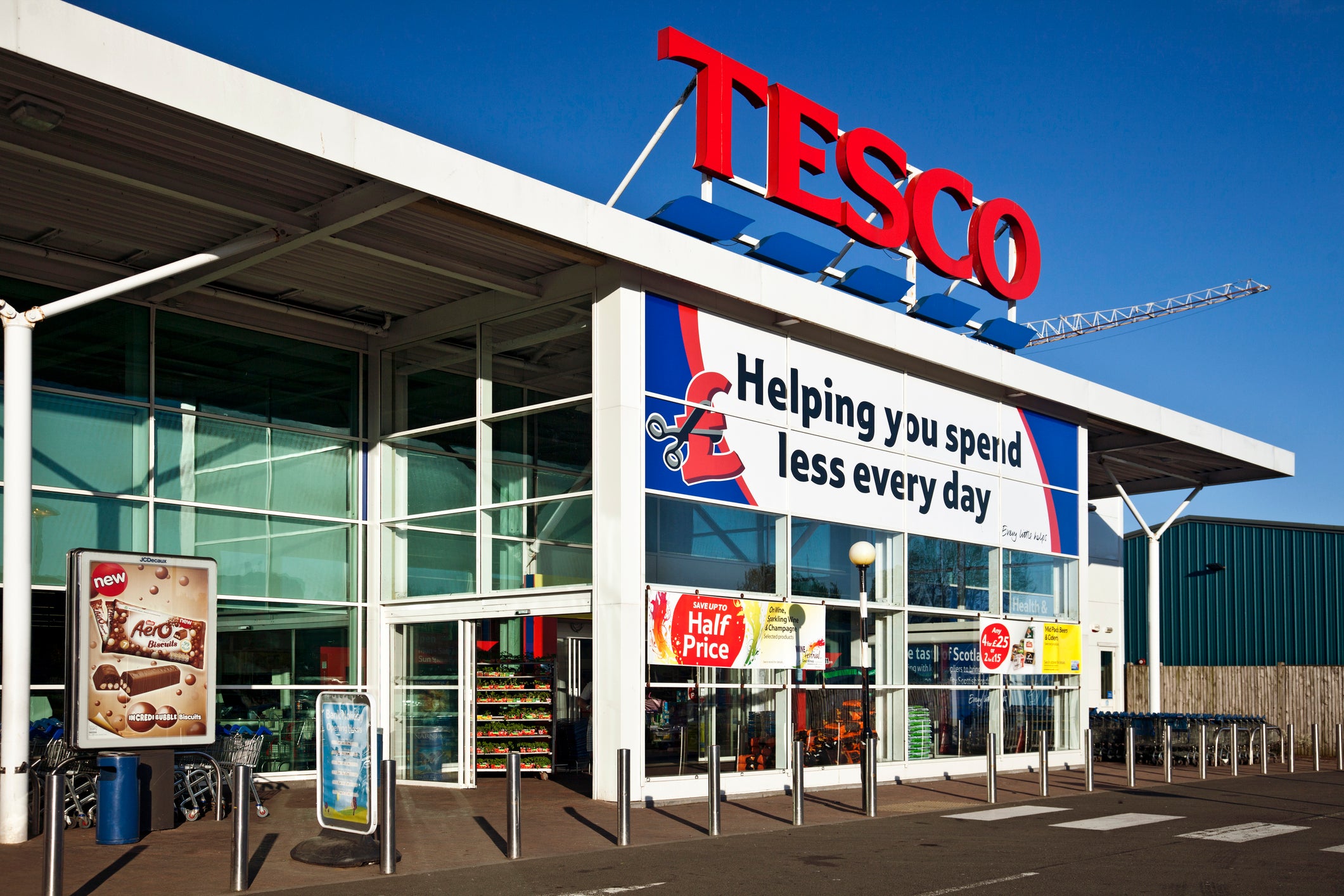Tesco vows to remove one billion pieces of plastic packaging by end of 2020
‘Last year Tesco produced 18 billion pieces of plastic, so they’ve got plenty of work to do but it’s a good start’, campaigners say

Your support helps us to tell the story
From reproductive rights to climate change to Big Tech, The Independent is on the ground when the story is developing. Whether it's investigating the financials of Elon Musk's pro-Trump PAC or producing our latest documentary, 'The A Word', which shines a light on the American women fighting for reproductive rights, we know how important it is to parse out the facts from the messaging.
At such a critical moment in US history, we need reporters on the ground. Your donation allows us to keep sending journalists to speak to both sides of the story.
The Independent is trusted by Americans across the entire political spectrum. And unlike many other quality news outlets, we choose not to lock Americans out of our reporting and analysis with paywalls. We believe quality journalism should be available to everyone, paid for by those who can afford it.
Your support makes all the difference.Britain’s biggest retailer Tesco has pledged to remove one billion pieces of plastic from products by the end of 2020 as it seeks to reduce its environmental impact and meet consumer demand for less waste.
The supermarket will end its use of small plastic bags, commonly used to pack loose fruit, vegetables and bakery items, and replace them with paper ones.
It will also remove plastic trays from ready meals, secondary lids on products such as cream and yoghurt, sporks and straws from snack pots and drinks cartons, and 200 million wrappers used to pack clothing and greetings cards.
Where non-recyclable and excess packaging cannot be removed, for example where it prevents food waste, the retailer has pledged to reduce it to an absolute minimum. It is also looking at new ways to reuse its packaging, stating “if packaging can’t be recycled, it will have no place at Tesco”.
“Last year Tesco produced more than 18 billion pieces of plastic, so they’ve still got plenty of work to do, but this is a good start and we hope to see further reductions when it introduces its reusable packaging scheme for online orders in the New Year,” said Louise Edge, head of Greenpeace UK’s ocean plastics campaign
Tesco met 1,500 suppliers in August to let them know that packaging will form a key part of its decision-making process to determine which products it sells, and that it reserved the right to no longer stock items that use excessive or hard-to-recycle materials.
Tesco chief executive Dave Lewis said: “Our work to ‘Remove, Reduce, Reuse & Recycle’ is already transforming our packaging. Over the next 12 months, we will remove one billion pieces of plastic, further reducing the environmental impact of the products we sell.
“By focusing on solutions that we can apply across all our UK stores and supply chain, we can make a significant difference and achieve real scale in our efforts to tackle plastic.”
WWF UK’s sustainable materials specialist Paula Chin said: “Plastic pollution is the most visible symptom of the environmental crisis we’re currently facing.
“Businesses, governments and households have all got an important part to play, so it’s good to see Tesco’s commitment to significantly reduce the amount of plastic we use.”
Britons have become increasingly aware of the amount of plastic they use following David Attenborough’s “Blue Planet II” documentary which highlighted the dangers of plastic pollution to marine life.
In recent years Britain has slashed the use of plastic bags by introducing a 5 pence charge for each one. The government has also considered imposing a “latte levy” on disposable coffee cups which are hard to recycle.
Ms Edge said: “Tesco is absolutely doing the right thing in looking to reduce the number of pieces of plastic packaging it produces.
“When supermarkets focus solely on reducing their packaging by weight, this can trigger a policy of light-weighting – meaning packaging gets thinner or smaller, but still exists as a throwaway item that can pollute our waterways and harm marine wildlife.”
The announcement is the latest by retailers undergoing large-scale targeting of packaging waste.
In September, Sainsbury’s pledged to halve the amount of plastic used in its stores by 2025.
Additional reporting by PA
Join our commenting forum
Join thought-provoking conversations, follow other Independent readers and see their replies
Comments